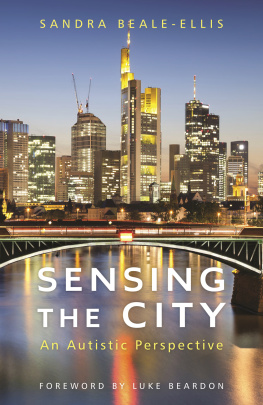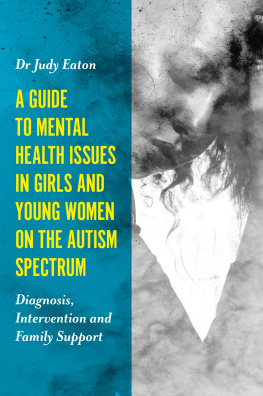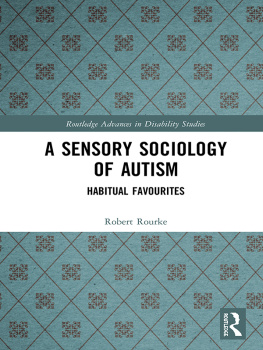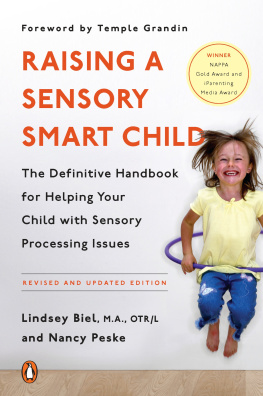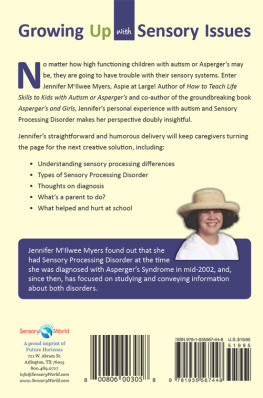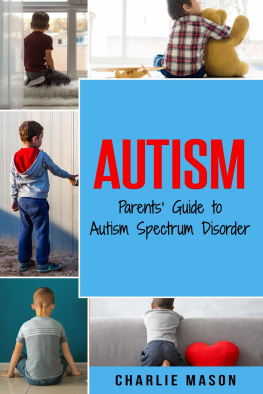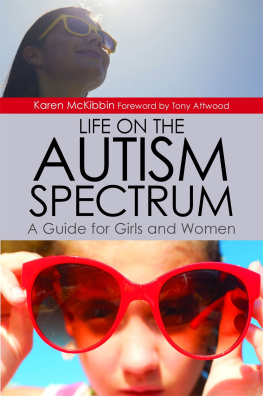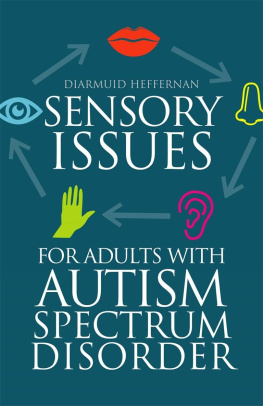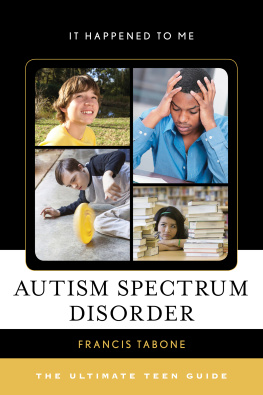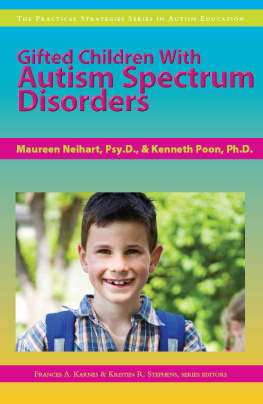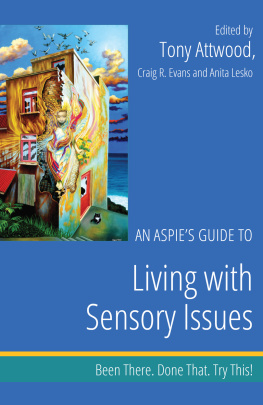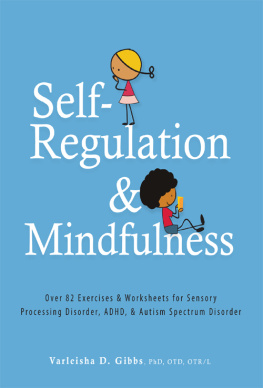Beale-Ellis - Sensing the City
Here you can read online Beale-Ellis - Sensing the City full text of the book (entire story) in english for free. Download pdf and epub, get meaning, cover and reviews about this ebook. City: London, year: 2017, publisher: Jessica Kingsley Publishers, genre: Religion. Description of the work, (preface) as well as reviews are available. Best literature library LitArk.com created for fans of good reading and offers a wide selection of genres:
Romance novel
Science fiction
Adventure
Detective
Science
History
Home and family
Prose
Art
Politics
Computer
Non-fiction
Religion
Business
Children
Humor
Choose a favorite category and find really read worthwhile books. Enjoy immersion in the world of imagination, feel the emotions of the characters or learn something new for yourself, make an fascinating discovery.
- Book:Sensing the City
- Author:
- Publisher:Jessica Kingsley Publishers
- Genre:
- Year:2017
- City:London
- Rating:5 / 5
- Favourites:Add to favourites
- Your mark:
- 100
- 1
- 2
- 3
- 4
- 5
Sensing the City: summary, description and annotation
We offer to read an annotation, description, summary or preface (depends on what the author of the book "Sensing the City" wrote himself). If you haven't found the necessary information about the book — write in the comments, we will try to find it.
Visiting a city can be an exciting and overwhelming experience, especially when you have Autism Spectrum Disorder (ASD). This enlightening book provides a first-hand sensory perspective of what experiencing a city is like for someone with ASD and offers advice on how to cope in a city when you have sensory issues.
Sensing the City — read online for free the complete book (whole text) full work
Below is the text of the book, divided by pages. System saving the place of the last page read, allows you to conveniently read the book "Sensing the City" online for free, without having to search again every time where you left off. Put a bookmark, and you can go to the page where you finished reading at any time.
Font size:
Interval:
Bookmark:

SENSING
THE CITY
AN AUTISTIC PERSPECTIVE
SANDRA BEALE-ELLIS
FOREWORD BY LUKE BEARDON

Jessica Kingsley Publishers
London and Philadelphia
CONTENTS
FOREWORD
Ive known Sandra for many years now, and it is no surprise to me whatsoever that she has produced such a fascinating read for publication. The journey shes been on (figuratively, as well as literally) to getting this done has not always been easy. There have been times when Sandra shared with me that it was all too much, and she was considering not completing it. Privately, I gave myself a wry smile and thought, Yeah, whatever, SandraIll believe that when I see it because she simply never gives up, on anything as far as I can tell. However challenging, daunting or problematic a situation she finds herself in, she fights on with what can only be described as inspirational spirit. And she tends to end up winning! I have had the immense privilege to have known Sandra in a plethora of different guises, and in each one she has shown the same determination to give it her best and Sandras best is usually pretty good in my experience.
Decades ago I met a young autistic man who shared with me that the reason he always tried to run away when it was time for his evening shower as a (non-verbal) child was because each droplet of water felt like a pin prick on his skin, such that the experience of standing under a shower was akin to torture. When I discussed this with his parents they were understandably horrified. They wanted to know how this could have been the case: Why hadnt they been told by professionals? Was this commonly found within the autism population? Questions I found myself unable to answer but questions that spurred a burning desire to find out the answers; that desire is no less strong today as it was all those years ago. Since then I think my knowledge around how the sensory environment might impact autistic individuals has grown while acknowledging that I have a vast amount to learn, so it was with great pleasure that I sat down to read this late one evening. I read the first chapter before I was told in no uncertain terms that it was bedtime. I went to bed smiling, knowing that I had the rest of the book to look forward to reading the following day!
In 2013, finally, sensory issues were included within one of the main diagnostic manuals in relation to autism. At last it seemed that the world in general was beginning to understand that traditional autism theory does not account for all things autistic! Sensory hyper and hypo sensitivities are becoming better understood although there is clearly a long way to go.
Any information that gives society an insight into how an autistic person experiences life must be of some benefit; any information that allows a better understanding of how the sensory environment might play a part in those experiences is of potential value in a myriad of differing ways. What Sandra has done in part through her having fallen in love with autoethnography is exposed a part of her world to us readers. In my mind this is an astonishingly brave thing to do. Like so many other autistic adults who are proactively sharing their lives with the rest of the world, she is doing so with an openness and honesty that cannot, or should not, be overlooked. The number of blogs screaming out to be read, the autobiographical accounts, the autistic speakers at conferences and training events the autistic voice this should be the starting point for professionals and others on their own journey to a better understanding of autism. And yet this is so rarely the case. All over the globe autistic individuals are doing something so powerful, and doing it with an incredible selflessness, in sharing themselves with the world in such an open and honest way and yet it seems so rare that it is understood for the extraordinary resource that it is. I am hopeful that Sandras publication nudges more people along that road of discovery through an understanding that the real lived experience, presented to readers, is a gift that should never be turned down.
Sensory processing will impact each autistic person differently and, indeed, one persons sensory experiences may differ from one day to the next, or even one minute to the next. Sandra makes this very clear that autistic individuals are exactly that, individuals. However, this should not stop anyone from gaining insight through one persons experiences (well, two if you count Sandras husband, who makes several guest appearances throughout the book!). Any autistic experience is rich and to be learned from whenever possible. Its one of the things that should keep any autism professional firmly grounded, because every single autistic person can teach a professional something new which means, unless one has met and learned from all autistic people, there is always more to learn which is a delight, in my opinion.
One of the most anxious times in my professional life was when I inadvertently upset Sandra, to the point that she was considering whether she wanted to continue with me as her Doctoral supervisor; I am so relieved that the final decision came out in my favour. Not having Sandra in my life would leave a glaring hole.
What is the book about? Is it simply an autobiography? No. Is it a travel book? An autism theory book? A relationships book? A guidebook? A guidance book? A guidance guidebook?! It is all of those things, and more. Its intriguing, its compelling, and its beautifully written. It holds a huge amount of information some of it might be useful to autism professionals, some for parents, some for autistic readers (of course some readers might be autistic parents and professionals all at the same time!).
Above all, its an informative, insightful, and a thoroughly enjoyable read.
Luke Beardon, Senior Lecturer in Autism,
Sheffield Hallam University
INTRODUCTION
If you imagine a city, you might at first think about the skyline, the buildings for which it is famous; you may then imagine cars zooming up and down, streets filled with dust and fumes, people crowded together on pavements, going in and out of buildings as they live and work in the city. Tourists might be among the bustle, taking photographs and choosing postcards to send home to their loved ones. The city can be challenging, and for many it is easier to walk around in a bubble, just getting to where you need to be without really appreciating what is all around you.
This book is a metaphorical window into an autistic mind, a glimpse at how we see the world and, in this case, the city. We possess myriad sensory differences which alter our perspective of what we experience; sometimes we need the bubble, but at other times we live for the detail of the city around us.
You might get a sense of comfort from looking into this window, or new awareness, or simply a few tips that can be used when the city becomes too much. Whatever you take away, I hope you at least enjoy the read.
* * *
It is early afternoon on a summers day. The streets are bustling with holidaymakers, workers, shoppers; around me, the buzz of chatter is rampant. I can feel the heat on my skin, and the aroma of the delicious heat makes me smile. I have stopped to watch a street performer who is painted silver and appears to be sitting as still as a glorious statue in a museum. Unremarkable, you would think, but this silver man is suspended in mid-air without the apparent prop of a chair or table holding him upright. I am sure many of you have seen performers of this ilk and wondered what the secret is. Today there are people surrounding him, trying to put their hands around him, trying to solve the mystery of this seemingly floating human. I think I have worked out what may be happening, but I am unsure. Should I say something, ask him? I find myself getting frustrated and unable to hold back, and when the crowd leaves, I approach him and whisper my thoughts to him. He slowly nods and puts his finger to his mouth for me to stay silent. I put money in his hat on the ground and walk away, happy that I was rightand no, dear readers, I wont tell you his secret either.
Next pageFont size:
Interval:
Bookmark:
Similar books «Sensing the City»
Look at similar books to Sensing the City. We have selected literature similar in name and meaning in the hope of providing readers with more options to find new, interesting, not yet read works.
Discussion, reviews of the book Sensing the City and just readers' own opinions. Leave your comments, write what you think about the work, its meaning or the main characters. Specify what exactly you liked and what you didn't like, and why you think so.

